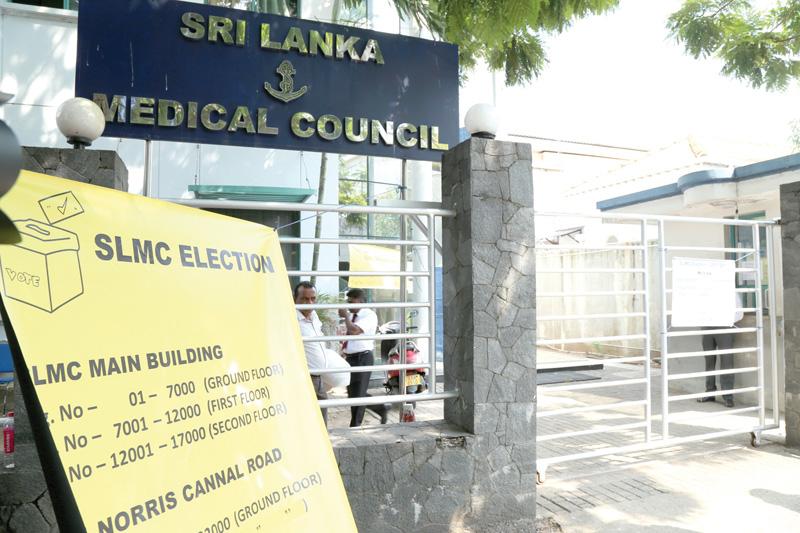
Ruling affects foreign-qualified doctors :
Last week, the country’s judiciary again acted in defence of collective justice, this time in enabling, for the first time, foreign-qualified doctors to practice in the country – a historic development on the Sri Lankan medical scene.
Over the past three years, a number of lawsuits have indirectly highlighted the dire need of reforming the Sri Lanka Medical Council (SLMC), especially its attitude towards non-state medical students.
It started with the defeat of the SLMC in their judicial battle with 85 graduates of the South Asian Institute of Technology and Medicine (SAITM). The SLMC lost a case filed in the Court of Appeal (CoA) in January 2017 following their refusal to grant provisional registration to the graduates of a private medical college in Malabe (SAITM).
Challenging the CoA order, the SAITM appealed to the Supreme Court (SC). The apex Court was of the view that the 85 SAITM graduates should be registered with the SLMC and it upheld the CoA decision. However, to-date, those 85 graduates are not registered with the SLMC.
In the meantime, another historic judgement on the Medical Council’s treatment of medical graduates from outside the State-run education sector, was issued last week. This time it was foreign-qualified medical graduates (students who completed their medical degrees in foreign countries). Supreme Court Justices Prasanna Jayawardena, L.T.B. Dehideniya and Murdu Fernando ordered the SLMC to register foreign -qualified medical graduates who have successfully passed the Examination for Registration to Practice Medicine(ERPM) conducted by it.
A medical graduate of Odessa University (Ukraine), filed the successful fundamental rights case, and President’s Counsel Romesh de Silva, Counsels Sugath Caldera, Niran Anketell and Sanjaya Vitarana appeared for the petitioners.
Senior State Counsel Suren Gnanaraj appeared for the Sri Lanka Medical Council, the first respondent in the case, while Kanishka Vitarana appeared for the second, third and fourth respondents of the case, Minister of Health, Secretary to the Ministry of Health and Attorney General respectively.
The petitioner informed the court that, by February 1st, 2019, she had submitted an application to the Medical Council after meeting all the eligibility requirements to register as a medical practitioner.
However, the petitioner had received in reply a letter from the Registrar of SLMC stating that certain graduates– (among those who had applied for registration in the Medical Council )- had faced a problem with their GCE A/L results. Based on that fact, the letter had further stated that a final decision whether or not to register them,would be taken at the Medical Council Meeting to be held on February 6th.
A letter later sent by the Registrar of the Medical Council states that according to legal advice obtained by the Medical Council, the graduates should be registered. However, even after it was contested in courts, the Medical Council had arbitrarily refrained from enrolling these graduates.
After hearing all parties, the Supreme Court ruled last Tuesday (July 23) that the SLMC should register these graduates.
One significant feature of this Supreme Court decision is that the Medical Council had been advised by the apex court not to act beyond its powers.Justice Dehideniya stated in the judgment that an institution established by a parliamentary Act (such as the SLMC) has no authority or power to exceed the provisions of that Act.
The base of the case was the Minimum Standard of Medical Education (MSME) which was gazetted in January 2018. However MSME was not applicable at the time these graduates were studying in foreign universities. They went abroad with the recommendation of the Medical Council that they would be eligible to pursue medical education.
“The Medical Ordinance is a “law enacted by the Parliament”. A law enacted by the Parliament is of significant value, for two reasons. In one perspective, a law enacted by the parliament has a power to organize the society and in the other way, it protects the citizens. The sanctity of a law enacted by the Parliament is at the zenith. The 1st Respondent(SLMC) is not empowered to impose rules, which override an enactment which has been passed by the Parliament…” the Court decision stated.
It further stated that:“…a law enacted by theParliament as the supreme Legislative organ cannot be overridden by a regulation which has been arbitrarily made by a subordinate authority. Such a regulation which has arbitrarily been enacted shall not have a retrospective effect”.
According to the Sri Lanka Medical Ordinance, the eligibility requirements for a person to be registered as a medical practitioner in the Medical Council are clearly stated. Firstly, the applicant should be a Sri Lankan ‘with a good character’.
Secondly, he or she must hold a degree obtained from an SLMC accredited medical degree institute in Sri Lanka or another country.
Thereafter, following the successful pass of the ERPM exam, a foreign qualified Medical practitioner, can be registered as a doctor in Sri Lanka.
The key point was that the Medical Ordinance does not specify the GCE Advanced Level as part of any of the above qualifications.
Therefore the case was not just a win for the foreign-qualified medical graduates but was also a setback to the SLMC’s stance, which itself is partly the outcome of elements of the professional medical community. Prof. Colvin Gunaratna, one of the most eminent of the Medical Council’s Presidents, once famously remarked that the Council was “a victim of a powerful doctor mafia”.
